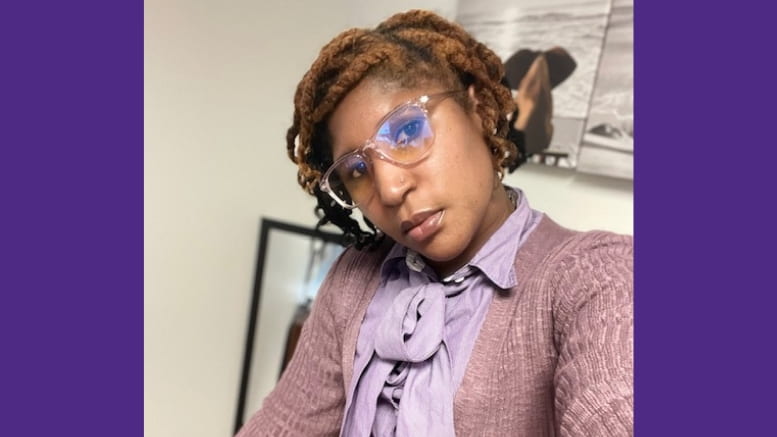Meet Assistant Professor of Instruction Charlayne Mitchell of the Program in Global Health Studies
March 20, 2024

Meet Charlayne Mitchell, Assistant Professor of Instruction in the Program in Global Health Studies at Northwestern University, which is celebrating its 20th anniversary this year.
Where are you from? Where did you study?
I am southern-grown. I was born in Mississippi in a small town just under an hour outside of the state capital city, Jackson. At eight years old, I moved to a city in the panhandle of Florida, and from 12 years old until I graduated from high school, I lived in a small town outside of Little Rock, Arkansas. I studied at the University of Arkansas at Fayetteville for my undergraduate and master’s degrees and then received my Ph.D. from Arizona State University.
What inspired you to pursue your area of study?
I have been interested in how the body functions since I was three years old. For example, I am dating myself, but I would lie on the floor in the living room of my house and browse through my mother’s Medical Encyclopedias. I went from A to Y in my mother’s Medical Encyclopedias, learning all sorts of things about the body and asking her every question that ran through my mind, with one of those questions being, “Where is the “Z” Medical Encyclopedia?” My mother had lent it to one of her radiologist technician classmates when she was in training and never saw the “Z” Medical Encyclopedia again. I am a part of a large family. After multiple premature deaths, I reconnected to my three-year-old self and the curiosity that I had for human health. I decided to go to graduate school to produce a better understanding of human physiology, biochemistry, and the personal and community experiences attached to biological measurements.
Please describe your research.
I am an interdisciplinary scholar whose works sit between social science and anthropology with a research commitment to work with underheard and underserved communities with a focus on how Black women language, maintain, define, and negotiate health “risk,” and navigate barriers to equitable healthcare using methodological frameworks situated in Black Feminist qualitative inquiry.
What are you working on right now that excites you the most?
I am currently designing a new course that combines the complexities of authenticity, nutrition, stigmas, health, and meal-making. This course will combine my nutrition, social science, and anthropology knowledge
How do you enjoy spending your free time?
I am a bougie lover of nature, meaning I do not tent pitch or hike on trails where I can disturb animals, but it is hard for me to resist long walks by beaches and well-traveled trails, arboretums, and letting water movement hypnotize me. I am also a great cook who loves to invent and redesign recipes. However, the best of my free time is spent with my family.
What is most fulfilling to you about teaching?
The most gratifying thing about teaching is being a continuous learner and an unexpected mentor. Teaching also fulfilling because it creates invaluable relationships, is a fertile field for planting new knowledge, and is a workshop for co-creating knowledge.

Society & Policy

Weinberg College faculty and graduate students recognized for excellence in teaching
July 2, 2025
Each year, the Weinberg College of Arts and Sciences and the Office of the Provost recognizes members of the College’s tenure-line and teaching-track faculty for excellence in teaching. Weinberg College in addition recognizes the contributions…

Passion for the planet: A new generation of environmental stewards starts here
May 29, 2025
Over the last two decades, the Weinberg College-housed Program in Environmental Policy and Culture (EPC) at Northwestern has embraced the humanities and social sciences and cultivated a new generation of environmental stewards. Growing up in…

The real beneficiaries of protective labor laws for women
May 20, 2025
During the first half of the 20th century, many states passed labor laws in response to the influx of women into the modern workplace. The so-called protective labor laws enacted by U.S. states restricted women’s…

Northwestern receives $25 million gift to advance adolescent mental health research
May 16, 2025
New institute will study psychology of emerging adults, leading to innovative wellness programming for students at the University and beyond Northwestern University is launching the Institute for Adolescent Mental Health and Well-Being, an interdisciplinary initiative…



